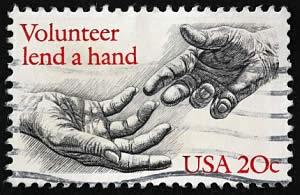This is going to be a tough one, because the Peace Corps is a very large organization, with a broad reach, and a large breadth of programs, volunteers and countries. However, it is also one of the most popular ways for people in the United States to volunteer abroad.
Unlike many volunteer abroad organizations, the Peace Corps isn’t a nonprofit organization or an NGO. It is a program that has been part of the federal government since 1960, when then Senator John F. Kennedy “challenged students at the University of Michigan to serve their country in the cause of peace by living and working in developing countries.” The Peace Corps as an agency of the federal government grew from their, with a mission of world peace and friendship.
The Peace Corps has sent more than 200,000 volunteers abroad to almost 140 host countries since then. Volunteers work on projects ranging from health initiatives, to education for children, to economic development.
Here are some quick facts about Peace Corps Volunteers:
- Average Age: 28
- Male to Female Ratio of Volunteers: 40/60
- Number of volunteers currently serving: more than 8,500
- Current number or countries served: 77
- Area with the most volunteers: Africa (37% of current volunteers)
We’ve also compiled a list of some commonly asked questions about the Peace Corps:
1) Do I need to speak the language?
No. Part of the Peace Corps training period is spent doing intensive language training so that you are prepared to communicate with those working on your project in your host country. However, for popular destinations in Latin America, previous experience with the Spanish language will enhance your application. This is also true for French language in certain regions of Africa.
2) How long will I be away?
The length of service in the Peace Corps is 2 years in your host country working on your project. The total length of time is actually closer to 27 months, which includes training time before your project begins.
The Peace Corps also offers vacation time, 2 days for every month of service. You can do anything you wish with this time, including traveling and exploring your host country and the surrounding region, or returning home. However, most volunteers have expressed that the Peace Corps encourages volunteers not to return to the U.S. but rather to stay in the region to avoid culture shock.
3) What are the financial benefits of becoming a Peace Corps volunteer?
 In addition to the benefits to your work experience, the Peace Corps does offer a number of financial benefits. There is no fee to participate, and volunteers receive a small living stipend each month, which varies depending on the region in which you are living. There is also a “repatriation allowance” of $7,425 that you receive when you return home from living abroad.
In addition to the benefits to your work experience, the Peace Corps does offer a number of financial benefits. There is no fee to participate, and volunteers receive a small living stipend each month, which varies depending on the region in which you are living. There is also a “repatriation allowance” of $7,425 that you receive when you return home from living abroad.
Those with student loans can also benefit from loan deferment during their time as a Peace Corps volunteer – some programs might even offer partial loan cancellation for service. In addition to loan benefits, many colleges and universities offer special scholarships for Returned Peace Corps Volunteers.
4) What will I do as a volunteer?
It’s almost impossible to answer this question comprehensively – Peace Corps volunteers do such a wide variety of things. For our next post, I’ll interview a Returned Peace Corps Volunteer who can talk more about her project and experience. The types of projects that volunteers participate in generally fall into the following categories (the percentages represent the number of current volunteer working in that area):
- Education: 37%
- Health & HIV/AIDS: 22%
- Business Development: 14%
- Environment: 13%
- Agriculture: 4%
- Youth Development: 5%
- Other: 5%
5) What if I want to stay longer?
There are many Peace Corps volunteers who chose to stay for an additional year after their term of service has ended. These third year volunteers enjoy all of the benefits of Peace Corps volunteers.
It is important to note that the Peace Corps is a real commitment. Spending 27 months away from friends and family can be both an adventure and a challenge. The Peace Corps application process actually contains some psychological evaluation, to assess how prospective volunteers might respond to the culture shock and isolation that occurs in many placements. This isn’t something to be nervous about, but prospective volunteers should be aware that the Peace Corps takes into account many aspects of an applicant when making a decision about acceptance in the program.
Most Returned Peace Corps Volunteers will agree that their two years of service were life changing, challenging, intriguing and exciting all at the same time. Most make the most of their time away through travel, and immerse themselves as much as possible in to their host country and culture. To give an even more in-depth perspective of what the Peace Corps experience is like, our next blog post will feature an interview with a Peace Corps alum who spent two years in Bulgaria, and then used her experience to attend graduate school.
Are you interested in learning more about other volunteer abroad opportunities? Please see the Overseas Volunteer Jobs section of JobMonkey.com for volunteer job listings and advice.